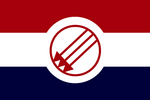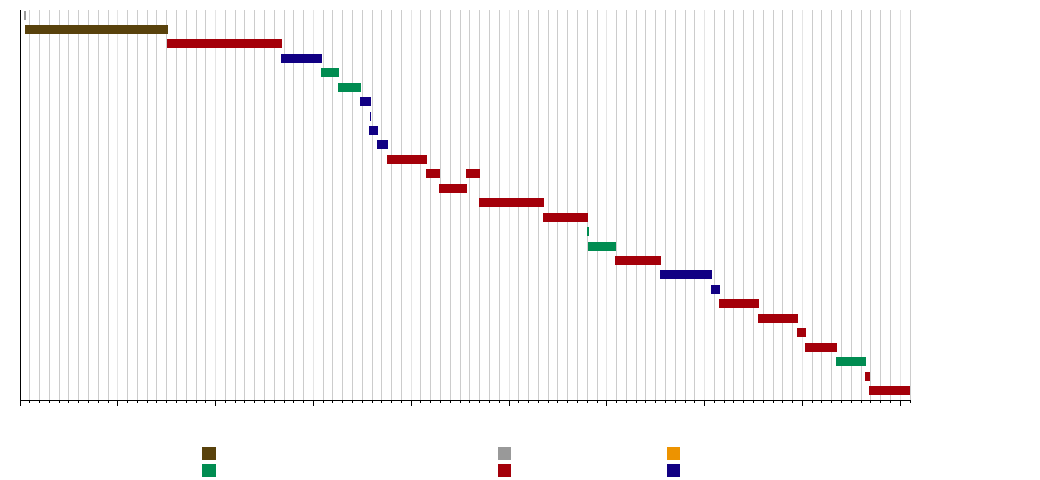Prime Minister of Auzance: Difference between revisions
No edit summary |
No edit summary |
||
| (23 intermediate revisions by the same user not shown) | |||
| Line 3: | Line 3: | ||
|post = Prime Minister | |post = Prime Minister | ||
|body = [[Auzance]] | |body = [[Auzance]] | ||
|flag = | |flag = AuzanceFlag.png | ||
|flagsize = 150px | |flagsize = 150px | ||
|flagcaption = | |flagcaption = Flag | ||
|image = CatreneBurnot2.png | |image = CatreneBurnot2.png | ||
|imagesize = 220px | |imagesize = 220px | ||
| Line 12: | Line 12: | ||
|style = His/Her Excellency (formal/diplomatic)<br/>Prime Minister | |style = His/Her Excellency (formal/diplomatic)<br/>Prime Minister | ||
|member_of = [[Tchambe]]<br>[[Cabinet of Auzance]] | |member_of = [[Tchambe]]<br>[[Cabinet of Auzance]] | ||
|residence = | |residence = Independence House<br><small>[[Cestiène]], [[Auzance]]</small> | ||
|appointer = [[Tchambe]] | |appointer = [[Tchambe]] | ||
|termlength = Four years | |termlength = Four years | ||
| Line 18: | Line 18: | ||
|precursor = | |precursor = | ||
|formation = {{start date and age|1933|6|14|df=yes}} | |formation = {{start date and age|1933|6|14|df=yes}} | ||
|first = [[Remy Warnot]] | |first = [[Remy Warnot]] (elected) | ||
|website = | |website = | ||
|deputy = [[Deputy Prime Minister of Auzance|Deputy Prime Minister]] | |deputy = [[Deputy Prime Minister of Auzance|Deputy Prime Minister]] | ||
}} | }} | ||
The '''prime minister of Auzance''', officially the '''prime minister of the Republic of Auzance''' ({{wp|Walloon language|Autuzian}}: ''prumîs minisses del republique Ôtuzance''), is the head of government of [[Auzance]]. The prime minister typically leads the largest party of both the Government of Auzance, and the [[Tchambe]] more widely, though coalitions can result in the second-largest party appointing a prime minister; a prime minister must command the confidence of the Tchambe to remain in their role. They lead the Cabinet, holding the power to appoint and remove its members. The current prime minister is [[Catrene Burnot]] of the Labour party, after the resignation of fellow Labour prime minister [[Thereze Astruc]] | The '''prime minister of Auzance''', officially the '''prime minister of the Republic of Auzance''' ({{wp|Walloon language|Autuzian}}: ''prumîs minisses del republique Ôtuzance''), is the head of government of [[Auzance]]. The prime minister typically leads the largest party of both the Government of Auzance, and the [[Tchambe]] more widely, though coalitions can result in the second-largest party appointing a prime minister; a prime minister must command the confidence of the Tchambe to remain in their role. They lead the Cabinet, holding the power to appoint and remove its members. The current prime minister is [[Catrene Burnot]] of the Labour party, after the resignation of fellow Labour prime minister [[Thereze Astruc]] on 27 November, 2019. | ||
==History== | ==History== | ||
The prime minister was initially a fused role as both head of government and head of state, especially as exercised by first prime minister [[Remy Warnot]] from 1933 to 1948. In 1971, the Constitution split the executive, judiciary and legislature, and the prime minister | The prime minister was initially a fused role as both head of government and head of state, especially as exercised by first prime minister [[Remy Warnot]] from 1933 to 1948. In 1971, the Constitution split the executive, judiciary and legislature, and the prime minister became nominally lower than the [[Premier of Auzance|Premier]] in rank; sitting prime minister [[Ritchåd Cougnî]] was elevated to the position of Premier in 1974. | ||
==Role== | |||
The role of the prime minister is primarily associated with its title as head of government, and the responsibilities associated with doing so - the prime minister proposes cabinet appointments to the Tchambe, and nominally leads their cabinet, thus having a strong influence on policy decisions and ideologies. As the prime minister has always been the governing coalition's largest party leader, their responsibilities associated therewith are often linked very closely. | |||
The power of a prime minister is very strongly correlated with their ability to negotiate and legislate, as the raw powers enjoyed by a prime minister without these powers is low, and similarly they are dependent on the size and stability of their parliamentary majority; this is because Auzance has a strong history of coalition governments, but also because of the ''primus inter pares'' (first among equals) philosophy associated with Autuzian prime ministers. Similarly, the separation of the Premier in the 1970s has diluted the power of prime ministers, particularly in the instance that both are from the same party, as the Premier retains significant constitutional powers and international roles. | |||
==Appointment== | |||
The prime minister, in practice, has typically been the leader of the largest political party in the government formed in the unicameral legislature of Auzance, the Tchambe; this may not be the largest party by raw seats, but will usually be. The prime minister therefore must be a sitting elected member of the Tchambe, and must command the confidence of the governing party and its coalition (if applicable) in order to maintain their position. | |||
The process to remove a prime minister is executed through votes of no confidence (or the failure of a vote of confidence), or a defeat on a ''matter of confidence'' (e.g. a national budget). The Premier reserves the right to refuse a resignation on a matter of confidence, but has no power to overturn that of a vote of no confidence, and likewise a resigning prime minister can overturn a refusal by self-appointing themselves to their own cabinet, a peculiarity of a constitutional amendment prohibiting prime ministers from appointing themselves to cabinet roles. Votes of no confidence require that a new prime minister is appointed, and then approved, within two weeks; failure to do so results in a triggered snap legislative election. A government may deliberately vote against itself in a tabled vote of confidence to trigger a legislative election, as was executed successfully in the runup to the [[2023 Autuzian legislative election|snap legislative election in 2023.]] | |||
==Timeline== | |||
<center><timeline> | |||
ImageSize = width:1040 height:auto barincrement:15 | |||
PlotArea = top:10 bottom:80 right:130 left:20 | |||
AlignBars = late | |||
Colors = | |||
id:aut value:rgb(0.35,0.26,0.05) legend: Authoritarian_Working_People's_Front_(FODO) | |||
id:cen value:rgb(0,0.55,0.32) legend: Renewal | |||
id:gray value:gray(0.6) legend: Independent | |||
id:acu value:rgb(0.647,0,0.043) legend: All-Councilist_Union | |||
id:lpr value:rgb(0.933,0.58,0) legend: Liberal-Progressive | |||
id:nat value:rgb(0.067,0,0.517) legend: National | |||
id:gray1 value:gray(0.9) | |||
id:gray2 value:gray(0.8) | |||
DateFormat = dd/mm/yyyy | |||
Period = from:01/01/1933 till:01/01/2024 | |||
TimeAxis = orientation:horizontal | |||
ScaleMajor = gridcolor:gray1 unit:year increment:10 start:01/01/1933 | |||
ScaleMinor = gridcolor:gray2 unit:year increment:1 start:01/01/1933 | |||
Legend = columns:1 left:205 top:35 columnwidth:75 | |||
TextData = | |||
pos:(25,30) textcolor:black fontsize:M | |||
text:"Political parties:" | |||
BarData = | |||
bar:ATchîpas | |||
bar:RWarnot | |||
bar:ELVanole | |||
bar:TTossint | |||
bar:ÂMeurice | |||
bar:EOto | |||
bar:DHenin | |||
bar:D-LGazea | |||
bar:ADokir | |||
bar:RLixhime | |||
bar:RCougnî | |||
bar:ANihoûle | |||
bar:DL'Djonne | |||
bar:RSorodje | |||
bar:TFagnrê | |||
bar:ABadjomé | |||
bar:ORôde | |||
bar:LManderlî | |||
bar:NGaspård | |||
bar:DLimwaisse | |||
bar:LRossele | |||
bar:SOrcîmont | |||
bar:TRaxhon | |||
bar:HLouxhî | |||
bar:EMarcour | |||
bar:TAstruc | |||
bar:CBurnot | |||
PlotData= | |||
width:8 align:left fontsize:S shift:(5,-4) anchor:till | |||
bar:ATchîpas | |||
from:14/06/1933 till:15/07/1933 color:gray text:"Andreye Tchîpas" fontsize:8 | |||
bar:RWarnot | |||
from:15/07/1933 till:08/02/1948 color:aut text:"[[Remy Warnot]]" fontsize:8 | |||
bar:ELVanole | |||
from:08/02/1948 till:10/10/1959 color:acu text:"[[Eûdalîye Linå Vanole]]" fontsize:8 | |||
bar:TTossint | |||
from:10/10/1959 till:05/11/1963 color:nat text:"[[Torgen Tossint]]" fontsize:8 | |||
bar:ÂMeurice | |||
from:05/11/1963 till:14/08/1965 color:cen text:"[[Ârnou Meurice]]" fontsize:8 | |||
bar:EOto | |||
from:14/08/1965 till:17/10/1967 color:cen text:"[[Ernesse Oto]]" fontsize:8 | |||
bar:DHenin | |||
from:17/10/1967 till:29/10/1968 color:nat text:"[[Djo Henin]]" fontsize:8 | |||
bar:D-LGazea | |||
from:29/10/1968 till:10/11/1968 color:nat text:"[[Djan-Louwis Gazea]]" fontsize:8 | |||
bar:ADokir | |||
from:11/10/1968 till:04/08/1969 color:nat text:"[[Andjlene Dokir]]" fontsize:8 | |||
bar:RLixhime | |||
from:04/08/1969 till:19/07/1970 color:nat text:"[[Rawoul Lixhime]]" fontsize:8 | |||
bar:RCougnî | |||
from:19/07/1970 till:21/07/1974 color:acu text:"[[Ritchåd Cougnî]]" fontsize:8 | |||
bar:ANihoûle | |||
from:21/07/1974 till:07/12/1975 color:acu | |||
from:05/09/1978 till:14/12/1979 color:acu text:"[[Alegzande Nihoûle]]" fontsize:8 | |||
bar:DL'Djonne | |||
from:07/12/1975 till:05/09/1978 color:acu text:"[[Douwård L'Djonne]]" fontsize:8 | |||
bar:RSorodje | |||
from:14/12/1979 till:21/07/1986 color:acu text:"[[Rôza Sorodje]]" fontsize:8 | |||
bar:TFagnrê | |||
from:21/07/1986 till:02/01/1991 color:acu text:"[[Tâve Fagnrê]]" fontsize:8 | |||
bar:ABadjomé | |||
from:02/01/1991 till:22/02/1991 color:cen text:"[[Åbwin Badjomé]]" fontsize:8 | |||
bar:ORôde | |||
from:22/02/1991 till:02/12/1993 color:cen text:"[[Ortense Rôde]]" fontsize:8 | |||
bar:LManderlî | |||
from:02/12/1993 till:17/07/1998 color:acu text:"[[Lominne Manderlî]]" fontsize:8 | |||
bar:NGaspård | |||
from:17/07/1998 till:30/09/2003 color:nat text:"[[Nicolai Gaspård]]" fontsize:8 | |||
bar:DLimwaisse | |||
from:30/09/2003 till:16/07/2004 color:nat text:"[[Dorotêye Limwaisse]]" fontsize:8 | |||
bar:LRossele | |||
from:16/07/2004 till:20/07/2008 color:acu text:"[[Lucyin Rossele]]" fontsize:8 | |||
bar:SOrcîmont | |||
from:20/07/2008 till:15/07/2012 color:acu text:"[[Silvèsse Orcîmont]]" fontsize:8 | |||
bar:TRaxhon | |||
from:15/07/2012 till:22/04/2013 color:acu text:"[[Tchåle Raxhon]]" fontsize:8 | |||
bar:HLouxhî | |||
from:22/04/2013 till:12/07/2016 color:acu text:"[[Houbêrt Louxhî]]" fontsize:8 | |||
bar:EMarcour | |||
from:12/07/2016 till:06/06/2019 color:cen text:"[[Edouard Marcour]]" fontsize:8 | |||
bar:TAstruc | |||
from:06/06/2019 till:27/11/2019 color:acu text:"[[Thereze Astruc]]" fontsize:8 | |||
bar:CBurnot | |||
from:27/11/2019 till:06/12/2023 color:acu text:"[[Catrene Burnot]]" fontsize:8 | |||
</timeline></center> | |||
{{Template:Auzance topics}} | {{Template:Auzance topics}} | ||
[[Category:Auzance]] | [[Category:Auzance]] | ||
Latest revision as of 21:46, 6 December 2023
| Prime Minister of Auzance | |
|---|---|
 Flag | |
| Style | His/Her Excellency (formal/diplomatic) Prime Minister |
| Member of | Tchambe Cabinet of Auzance |
| Appointer | Tchambe |
| Term length | Four years Renewable |
| Formation | 14 June 1933 |
| First holder | Remy Warnot (elected) |
| Deputy | Deputy Prime Minister |
The prime minister of Auzance, officially the prime minister of the Republic of Auzance (Autuzian: prumîs minisses del republique Ôtuzance), is the head of government of Auzance. The prime minister typically leads the largest party of both the Government of Auzance, and the Tchambe more widely, though coalitions can result in the second-largest party appointing a prime minister; a prime minister must command the confidence of the Tchambe to remain in their role. They lead the Cabinet, holding the power to appoint and remove its members. The current prime minister is Catrene Burnot of the Labour party, after the resignation of fellow Labour prime minister Thereze Astruc on 27 November, 2019.
History
The prime minister was initially a fused role as both head of government and head of state, especially as exercised by first prime minister Remy Warnot from 1933 to 1948. In 1971, the Constitution split the executive, judiciary and legislature, and the prime minister became nominally lower than the Premier in rank; sitting prime minister Ritchåd Cougnî was elevated to the position of Premier in 1974.
Role
The role of the prime minister is primarily associated with its title as head of government, and the responsibilities associated with doing so - the prime minister proposes cabinet appointments to the Tchambe, and nominally leads their cabinet, thus having a strong influence on policy decisions and ideologies. As the prime minister has always been the governing coalition's largest party leader, their responsibilities associated therewith are often linked very closely.
The power of a prime minister is very strongly correlated with their ability to negotiate and legislate, as the raw powers enjoyed by a prime minister without these powers is low, and similarly they are dependent on the size and stability of their parliamentary majority; this is because Auzance has a strong history of coalition governments, but also because of the primus inter pares (first among equals) philosophy associated with Autuzian prime ministers. Similarly, the separation of the Premier in the 1970s has diluted the power of prime ministers, particularly in the instance that both are from the same party, as the Premier retains significant constitutional powers and international roles.
Appointment
The prime minister, in practice, has typically been the leader of the largest political party in the government formed in the unicameral legislature of Auzance, the Tchambe; this may not be the largest party by raw seats, but will usually be. The prime minister therefore must be a sitting elected member of the Tchambe, and must command the confidence of the governing party and its coalition (if applicable) in order to maintain their position.
The process to remove a prime minister is executed through votes of no confidence (or the failure of a vote of confidence), or a defeat on a matter of confidence (e.g. a national budget). The Premier reserves the right to refuse a resignation on a matter of confidence, but has no power to overturn that of a vote of no confidence, and likewise a resigning prime minister can overturn a refusal by self-appointing themselves to their own cabinet, a peculiarity of a constitutional amendment prohibiting prime ministers from appointing themselves to cabinet roles. Votes of no confidence require that a new prime minister is appointed, and then approved, within two weeks; failure to do so results in a triggered snap legislative election. A government may deliberately vote against itself in a tabled vote of confidence to trigger a legislative election, as was executed successfully in the runup to the snap legislative election in 2023.
Timeline


